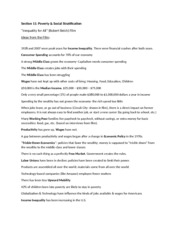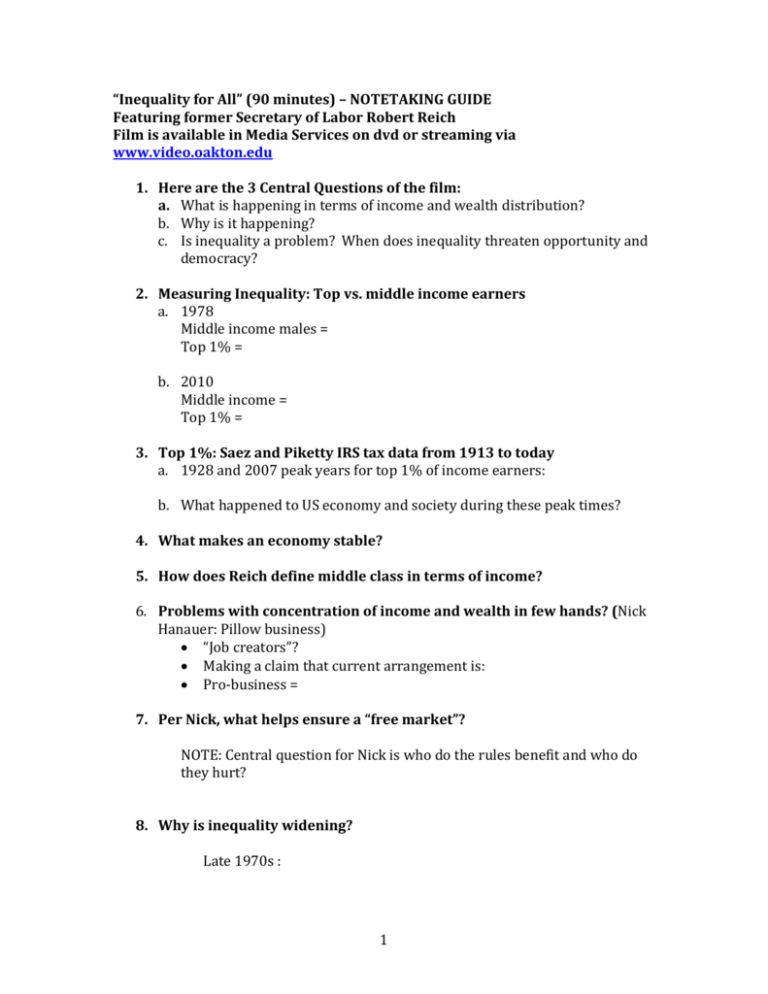Inequality for All is a documentary film that explores the widening income gap in the United States and its consequences for both individuals and society as a whole. The film, directed by Jacob Kornbluth and narrated by economist and former U.S. Labor Secretary Robert Reich, delves into the root causes of income inequality and its impact on the economy, education, health, and democracy.
The film begins by highlighting the dramatic increase in income inequality in the United States over the past several decades. Reich explains that in the 1970s, the top 1% of earners took in about 9% of national income, while today that figure has risen to about 20%. This means that the top 1% of earners are taking home a much larger share of the nation's income, while the vast majority of Americans are seeing their incomes stagnate or decline.
The film then examines the various factors that have contributed to this widening income gap. One major factor is the decline of organized labor and the rise of globalization, which have led to a decline in the bargaining power of workers and a corresponding increase in the power of corporations and the wealthy. Reich also points to the erosion of the progressive tax system, which has allowed the wealthy to pay a lower effective tax rate than the middle class.
In addition to discussing the causes of income inequality, the film also explores the consequences of this growing divide. Reich argues that income inequality is not only harmful to those at the bottom of the income ladder, but also to the overall economy. He cites research showing that more equal societies tend to have stronger economies, with higher levels of growth and productivity.
The film also touches on the ways in which income inequality affects education and health. Reich argues that the high cost of education, combined with stagnant or declining incomes for many Americans, makes it increasingly difficult for people to afford a college education. This, in turn, limits opportunities for social mobility and reinforces the income gap. Similarly, income inequality has been linked to a range of negative health outcomes, including higher rates of obesity, heart disease, and infant mortality.
Finally, the film discusses the impact of income inequality on democracy. Reich argues that the growing concentration of wealth and power among the top 1% threatens to undermine the principles of democracy, as the wealthy are able to use their financial resources to influence the political process and shape public policy in their favor.
Overall, Inequality for All is a thought-provoking and timely documentary that shines a light on the growing income gap in the United States and its consequences for individuals and society. Through interviews with experts and real-life examples, the film makes a compelling case for the need to address income inequality and suggests a number of potential solutions, including strengthening organized labor, reforming the tax system, and investing in education and job training.








